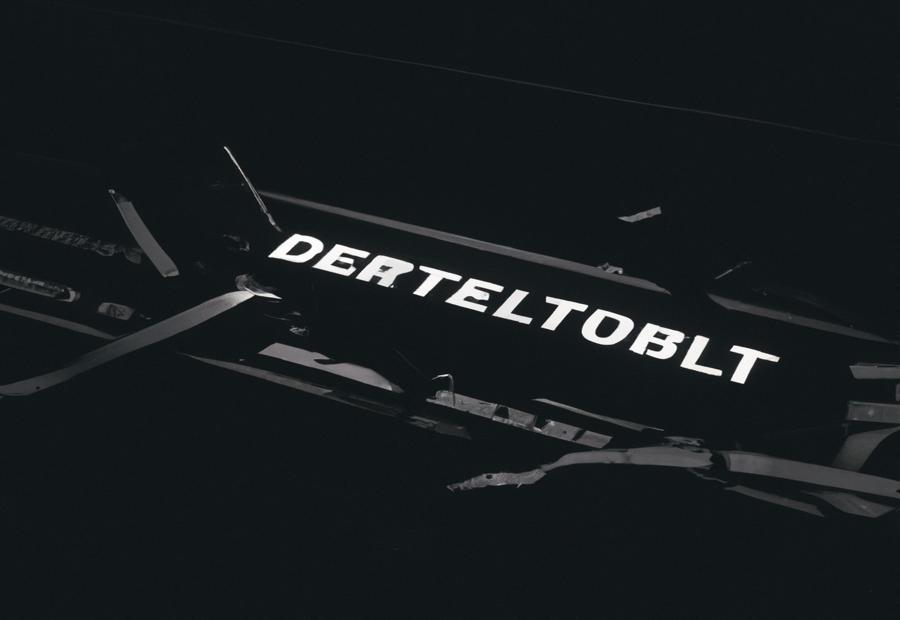Free Independant Advice
Specialist Insolvency Practitioners

Get in Touch Today to Speak to a Specialist Adviser
Closing a limited company can be a complex process, whether it has debts or not. It is important to understand your options to ensure a legal and efficient closure.
There are several options for closing a limited company, with and without debts.
For those with debts, one option is voluntary liquidation, which involves appointing a licensed insolvency practitioner to liquidate the company’s assets and distribute the proceeds to creditors and shareholders.
Another option is administration, which involves appointing an administrator to take control of the company and either restructure it or sell its assets.
For those without debts, company dissolution is a viable option. This is the process of removing the company from the Companies House register.
Debt arrangement is another option, which involves arranging a repayment plan between the company and its creditors to repay its debts over time.
Creditors’ voluntary arrangement (CVA) is also an option, which involves making an agreement with creditors to repay part or all of the company’s debt over a period of time, while continuing to trade.
Strike off is the process of removing the company from the Companies House register and is a viable option for solvent companies with no debts or liabilities that have not traded for at least three months.
It is important to note that directors have a legal obligation to ensure that the company’s debts are paid off before closing down. Failure to do so could result in personal liability for the company’s debts.
Dissolving a company with outstanding debts can have severe repercussions, as creditors have the legal right to take action against the company and potentially force it to be wound up by the court.
This can leave directors personally responsible for any unpaid debts, putting their personal assets, including their homes, at risk.
Also, dissolving a company with outstanding debts can have significant negative impacts on the directors’ credit rating, making it difficult for them to secure credit in the future, not only for their business but also for personal loans such as mortgages or car finance.
It is essential to understand that dissolving a company does not absolve it of its debts.
Creditors have the right to pursue their outstanding debts even after the company has been dissolved. Therefore, it is critical to resolve all the outstanding debts before dissolving a company to avoid any legal and financial consequences.
In summary, dissolving a company with outstanding debts can result in substantial legal and financial ramifications.
Directors can face personal liability, in turn, risking their personal assets, and it can negatively affect their credit rating. To avoid encountering negative consequences, it is crucial to address any outstanding debts appropriately before dissolving a company.
Here are all the related articles to insolvency services in the United Kingdom.





















Dissolving a company with debts is a major decision that requires careful consideration. Seeking professional advice before taking this step can help you understand the legal and financial implications. Consulting with a licensed insolvency practitioner can help you navigate the process and explore all available options.
It is important to keep in mind that dissolving a company with debts should not be taken lightly. To avoid legal action and damage to your personal credit rating, it’s crucial to have a clear understanding of your company’s financial situation and the potential consequences.
In addition to seeking professional advice, it’s also essential to consider the impact of dissolving a company on your stakeholders, including your employees and clients. Proper communication with them can help mitigate any issues that may arise during the process.
A real-life story highlights the importance of seeking professional advice. A small business owner who was struggling with debt decided to dissolve his company without legal advice. As a result, he was sued by his creditors, resulting in a lengthy legal battle that could have been avoided if he had sought professional guidance before making any decisions.
In summary, dissolving a company with debts requires careful consideration and professional advice. Taking the time to seek guidance from a qualified professional can save you time, money, and legal trouble in the long run.
Keywords: seeking professional advice, dissolving a company, debts, legal action, financial implications.
Yes, it is possible to close a company with debts, but strict rules must be followed to avoid accusations of fraud.
Three paths can be taken: Creditors Voluntary Liquidation (CVL), Administrative Dissolution, and Compulsory Liquidation.
If the company can pay its bills, it can either be struck off the Register of Companies or undergo a members’ voluntary liquidation, with striking off the company usually being the cheapest option. If the company cannot pay its bills, the interests of creditors come before those of directors or shareholders.
Creditors Voluntary Liquidation allows the director to stop trading and instruct a licensed Insolvency Practitioner to liquidate the company’s assets after analyzing the business to determine if CVL is the best route.
Pre-pack administration may be a better option if there are ongoing work, commitments, or contracts. If the company doesn’t have a director, a new one must be appointed, and shareholders may need to vote on it.
Yes, it is possible to start a new company after closing a company with debts and assets. However, it is important to navigate the process carefully and minimize negative impacts.
Dissolving a company through the Companies House register is a simple and cost-effective way to close a private limited company or a limited liability partnership.
Letting the company become dormant is an option if it’s no longer trading, but it must not be carrying on business activity, trading, or receiving income. The company still needs to pay corporation tax and file a tax return even if there’s no director.
If the company has outstanding debts, these debts will not be automatically written off when the company is dissolved.
Creditors can still pursue the company for payment, and directors may be held personally liable for any unpaid debts.
The options for closing the company in this case include a Company Voluntary Arrangement or compulsory liquidation.
Strict rules apply before a company can be dissolved, including paying off all debts and notifying all interested parties. Voluntary dissolution can remove a company from the Companies House Register if certain conditions are met.
The company cannot have significant debts and all requirements must be met.
The company must have not traded for three months and have no assets, property, or cash at the bank.
Creditors must be informed before dissolution. A step-by-step guide to dissolution is available for purchase, including easy-to-follow guides, templates, forms, and information on how to fill them in.
If the company doesn’t have a director, a new one must be appointed, and shareholders may need to vote on it.
We Aim To Reply To All Enquiries With-in 24-Hours